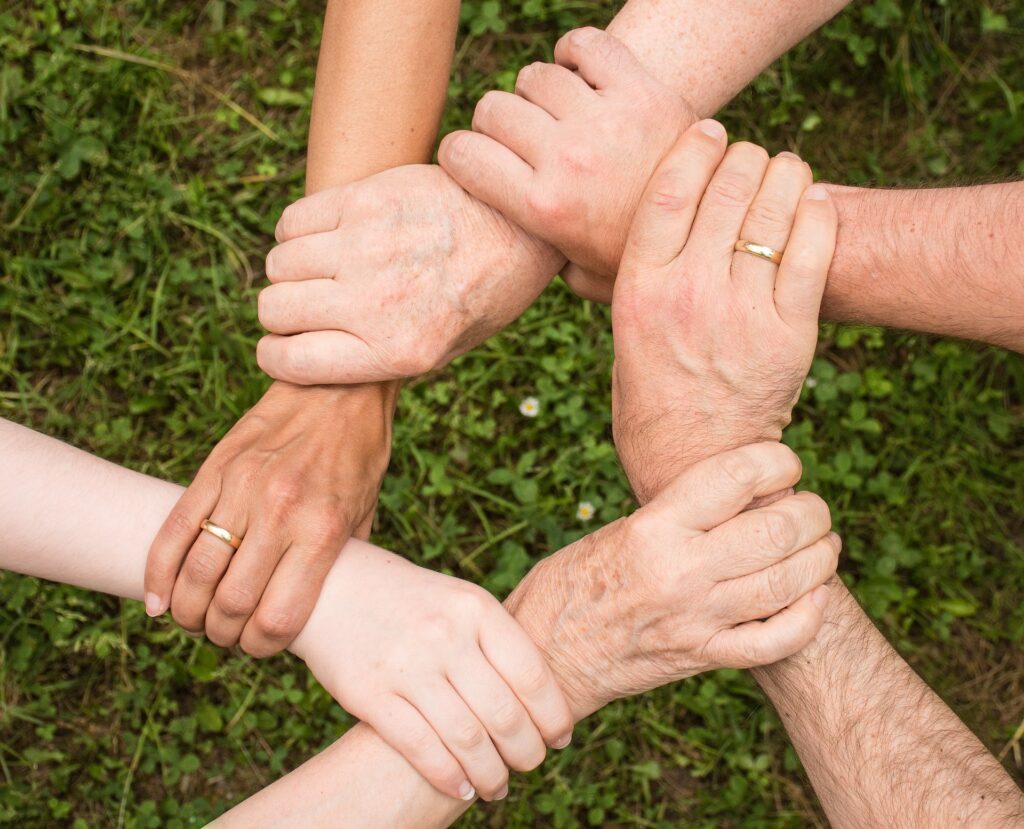- Home
- Addiction Guides
- Six Skills for Coping as a Family with Early Stages of Addiction
Six Skills for Coping as a Family with Early Stages of Addiction
It can be overwhelming when you discover your loved one is suffering from addiction. You may have no idea how to keep your family together or you may feel like your family is stretching at the seams under stress.
Just know that you are not alone.
Here, we will discuss six ways how you can cope with the early stages of addiction and how you can look after your and your family’s well-being while your loved one begins their road to recovery:
1. Learn About Addiction

If you think you begin to see the signs that one of your family members may be addicted, first seek out reliable information and learn about the complex disease of addiction.
It can be frustrating, confusing and worrisome to learn one of your family members is suffering from addiction, but there are hundreds of articles surrounding the ongoing research into this disease. [1]
You can find lots of detailed information from established, professional organisations.
You can also find information on how to access support groups that offer advice. You could also contact your GP.
It is essential to understand that substance abuse disorders are recognised as a medical condition; therefore, it is important to seek professional advice.
It can be straightforward to play the blame game and try to rationalise and understand why your loved one has begun to display signs of addiction.
It is helpful to know that addiction is associated with changes in the brain.
2. Adapt

When something troubling or stressful strikes, it is very normal to react with anger, grief and pain, however, you may have noticed that you have coped with these grievances in the past.
Resilience is part of life, and it doesn’t mean you should put up with something that makes your life difficult by being stoic or trying to figure it out on your own. In reality, reaching out and asking for help is a huge part of being resilient.
Think about how you have coped with hardships in the past; consider what you did to help you cope, and what worked and didn’t work.
Everyone is different, but you will have ways you will learn to adapt to your new situation.
It is healthy to keep a journal and write down previous experiences and identify positive and negative behaviour patterns, which you can then use to guide your future behaviour.
3. Connect

As previously mentioned, connecting and reaching out for help shows natural resilience.
Groups like Al Anon were created for the families of addicts to provide support and guidance.
They also offer a safe space where families can learn about, discuss and cope with addiction in the house.
A survey found that many people attend these meetings for different reasons, but the main help provided was:
- Discovering a better quality of life
- Improving mental health
- Lower levels of stress in the family
- Having fewer explosive problems with the family member who suffers from addiction. [2]
Another key aspect of attending these meetings is many feel less isolated. By listening and talking to other families, they begin to understand they are not alone and begin to develop skills to cope with interpersonal problems.
Those who stay informed and take better health of their mental health and well-being find that they are better equipped to deal with addiction, be supportive and lead their family down a road of recovery.
4. Be Supportive

When you discover your loved one is suffering from an addiction, it can be normal to try and investigate why your loved one has reached this stage and look at what you could have done differently.
Substance abuse disorders are a medical condition, so we must try to understand that our loved one isn’t someone to be blamed, but someone who is suffering from a condition that leads to unhealthy behaviours.
Speak up and offer your support to your loved one.
You could discuss your concerns, and offer help and support, without being preachy. Include a willingness to go with them to seek help for their issues, however, avoid emotional appeals as they might only increase feelings of guilt and shame for your loved one. [3]
Research shows that expressing your love and concern encourages your loved one to become independent, fair, and compliant.
Supported relations, family beliefs, family cohesion, flexibility and communication skills are all ways you can begin to build a supportive community around your loved one. [4]
5. Look after yourself and the rest of the family

It is very easy, when a family member suffers from an addiction, for everything to become about them, meaning other family members and your well-being gets left by the wayside.
You may have noticed your family dividing into roles designed to keep the family from imploding however this can be destructive in the long run. [5]
1. The Addict
Consciously or not, family members begin to focus all their time and energy on dealing with their addicted loved ones’ behaviour. By helping, enabling or covering up their actions to try and keep the status quo, your loved one can continue their behaviour without consequences.
2. The Caretaker
Seen as an enabler, this person may continually cover for your loved one and take on extra responsibilities to keep the family happy.
The caretaker can also be seen as a martyr, but subconsciously by shielding them they aren’t allowing your loved one to learn from their undesirable actions.
3. The Hero
Similar to the caretaker, the hero can be seen as an enabler by devoting their time and attention to covering for the addict and trying to make the family appear ‘normal’.
The hero will try to be responsible, sufficient and perfect to the detriment of themselves. Trying to take on the act of the golden child, they will often see the effect of addiction up close.
4. The Scapegoat
Seen as the opposite of the hero, the scapegoat is the problem child. Through acts of defiance or hostility, they act out and attract negative attention to distract everyone away from the addict’s behaviour.
In reality, they may be feeling left out or angry and needs better coping skills to cope with their new situation.
5. The Mascot
This person may be the comedian of the family, trying to lessen the stress by creating humour or silliness.
In reality, they may be feeling powerless and scared of the situation at hand and therefore try and dissuade any unpleasantness in the family with comedy.
This doesn’t last forever though and this person can quickly become anxious or depressed.
6. The Lost Child
This individual is the quiet one who consistently flies under the radar while the rest of the family plays their role in dealing with your loved one.
However, by staying out of the way, they can become isolated, and depressed and eventually avoid interactions with others.
It can be difficult to keep your family’s morale high during trying times, however, there are plenty of ways you can help your family.
You could begin by displaying empathy and affection appropriately to one another, expressing your feelings and emotions about the situation and discussing them.
Helping each other to recognise and understand their emotions will mean they are better able to cope with them.
Have expectations that are relevant to each family member based on their age and development, and manage conflict healthily.
By learning to cope better with stress, they will feel comfortable enough to approach their feeling healthily.
In general, provide structure for the family life by having set meals together where you can discuss feelings and goals, go to bed and get up at set times and put aside time to spend together.
6. Manage Expectations and Be Patient

Unfortunately, addiction is a progressive disease and it can take a long time for behaviours and patterns associated with addiction to change. Your loved one may hold onto old habits or become frustrated with the recovery process, which may lead to outbursts.
Relapses are a big part of addiction and can be especially disheartening to you and your family. Try to remember that relapse doesn’t mean complete failure.
Addiction is a chronic disease and relapses are a normal part of recovery.
Try to manage your expectations of yourself, your family members and your loved ones. There will be many ups and downs and recovery isn’t a linear process.
It will take time and effort for your relationships to heal; everyone makes mistakes so practice forgiveness and support one another through hard times.
Don’t aim for perfection, as it is impossible and will become disheartening fast.
It can be frustrating and it’s important to remember that everyone makes mistakes. Recovery isn’t a linear path, but through support, structure and care, your family will learn to cope with addiction healthily.
Together, you may find your family grows and becomes closer, mending relationships with one another, and leading to a healthier and happier environment.
References
[1] https://www.rehab4addiction.co.uk/guides/6-skills-coping-family-with-early-stages-addiction
[2] https://www.hazeldenbettyford.org/education/bcr/addiction-research/families-coping-with-addiction
[4] https://www.unodc.org/documents/prevention/family-guidelines-E.pdf
[5] https://online.alvernia.edu/infographics/coping-with-addiction-6-dysfunctional-family-roles/




